Arts
Examining the role of The Arts as a catalyst for healing, transformation and action
Introduction
The practice of Art—in its infinite forms, functions and implications—is the most accessible and universal way of constructing meaning out of the world we inhabit.
Our Philosophy: The Arts are not just for experts. They are not solely for the enjoyment of the elite. They are not a superfluous extravagance. The Arts are for us all, expert and novice alike. They are not just an end in and of themselves, but a means. They shape, and are shaped by the world we inhabit.
Students in the Arts Scholars program gain a deeper understanding of the impact of art as a means to explore society and culture against the backdrop of our individual differences and shared experiences.
What you can expect: No matter your major, area of artistic interest, or skill level, as a member of our community, you will be challenged to strengthen your personal artistic skill set, experiment with new and different art forms, and gain a deeper understanding of the value of the arts in our personal and collective lives. We will investigate the power of the arts to:
- Communicate difficult concepts
- Advocate for social change
- Investigate the human experience
- Explore our own identities
- Develop our capacities as creative problem solvers and critical thinkers
- Reinforce, but also upend, existing systems of inequality and oppression
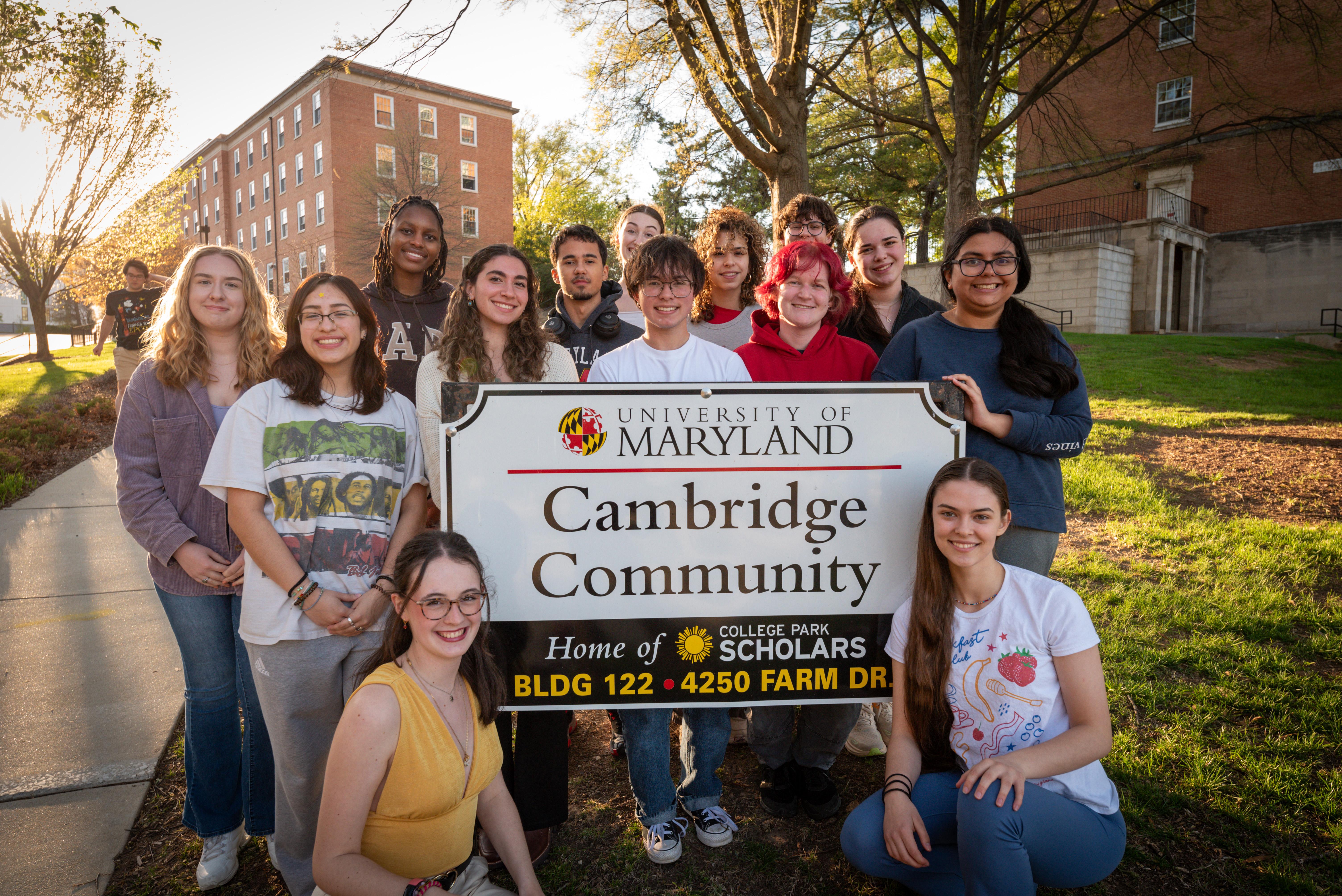
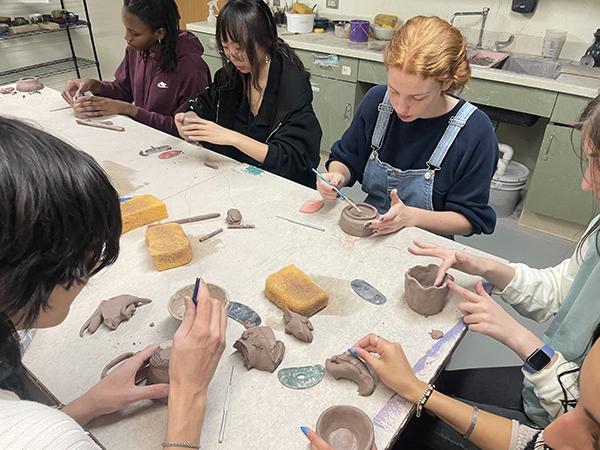
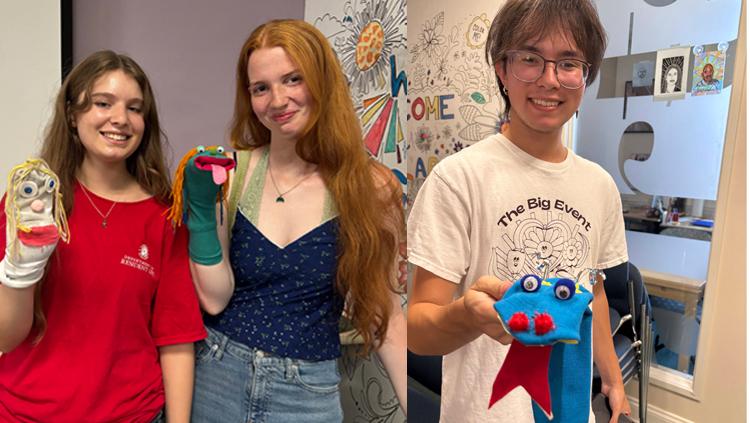
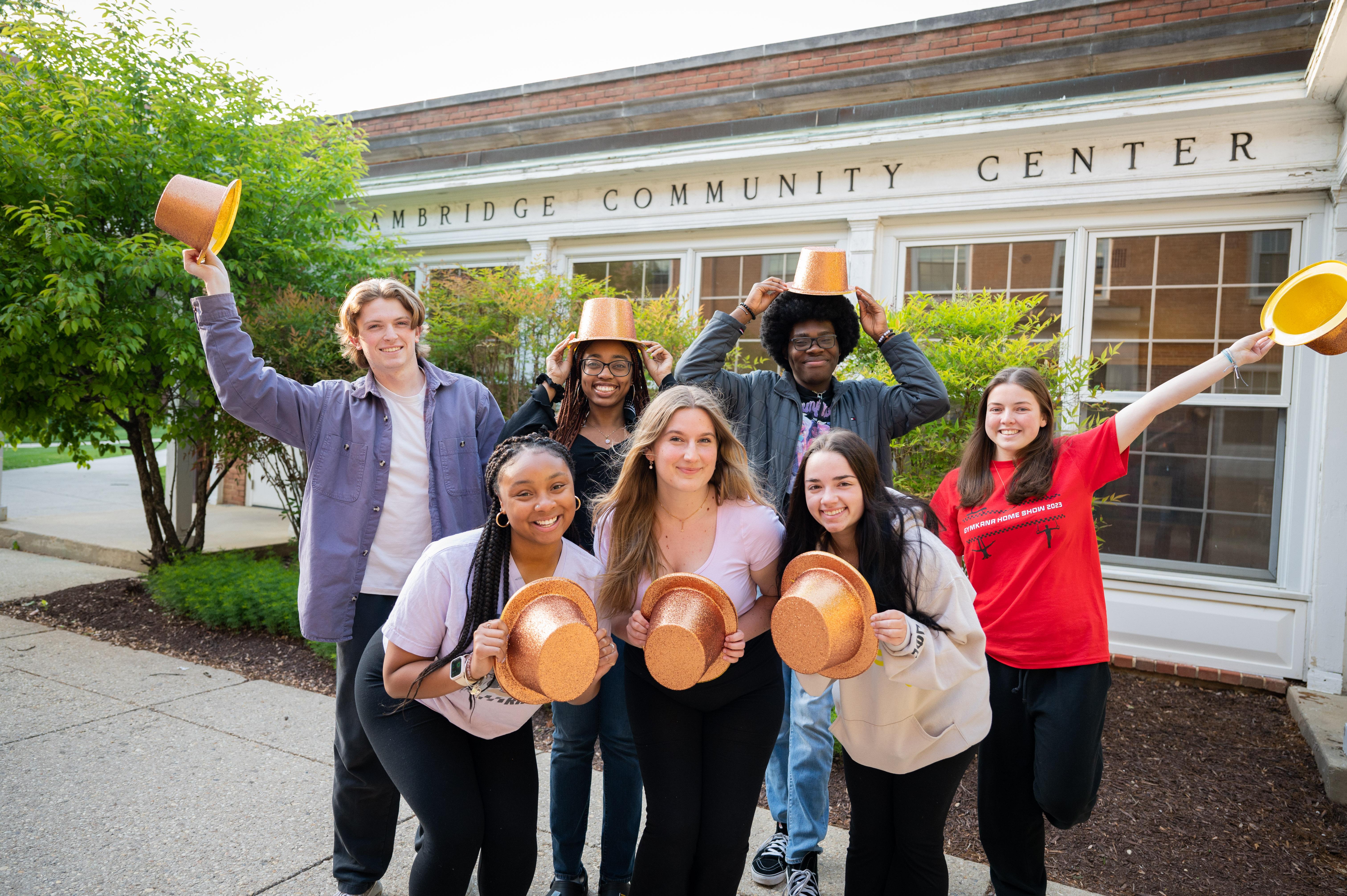
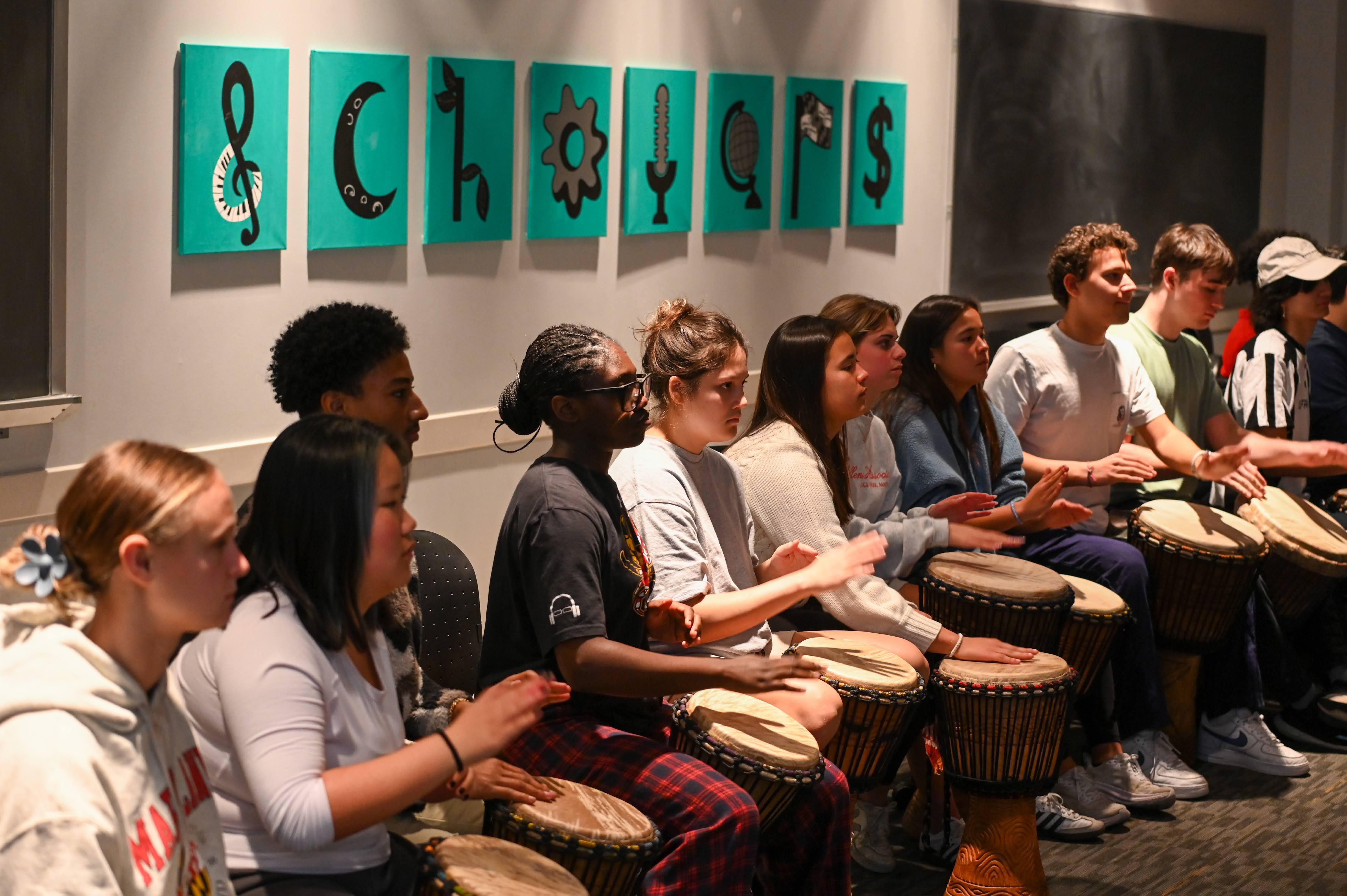
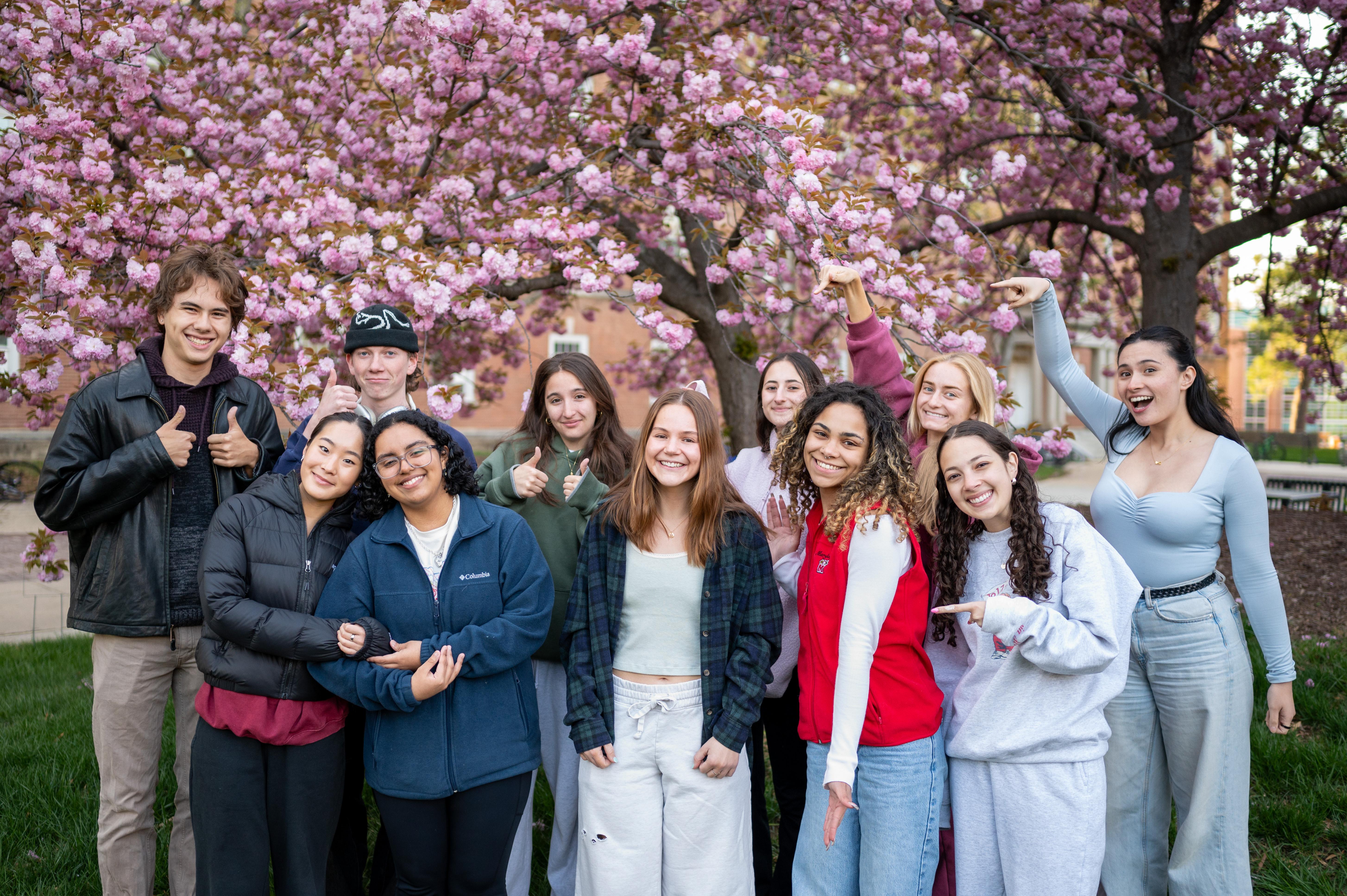
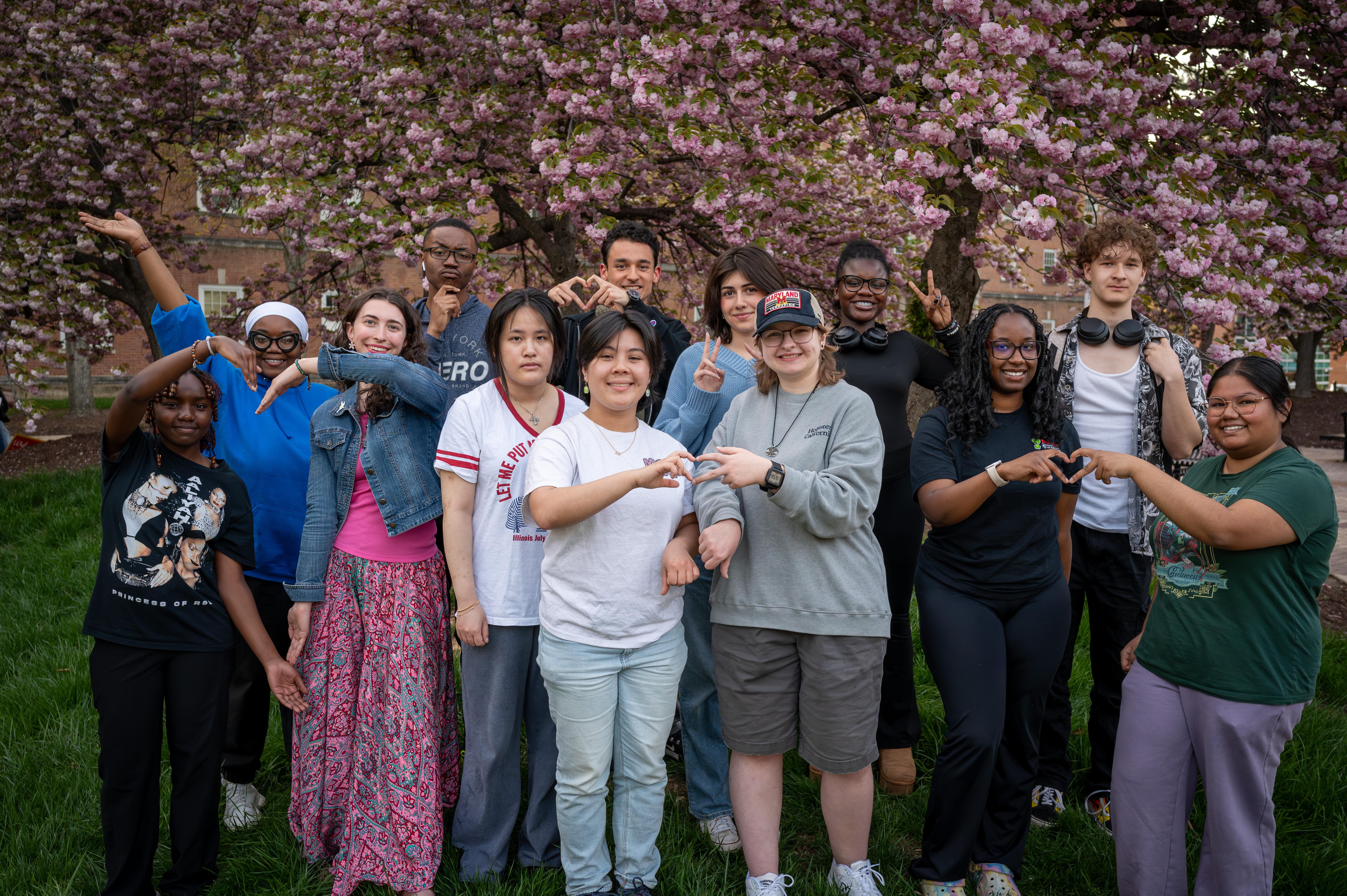
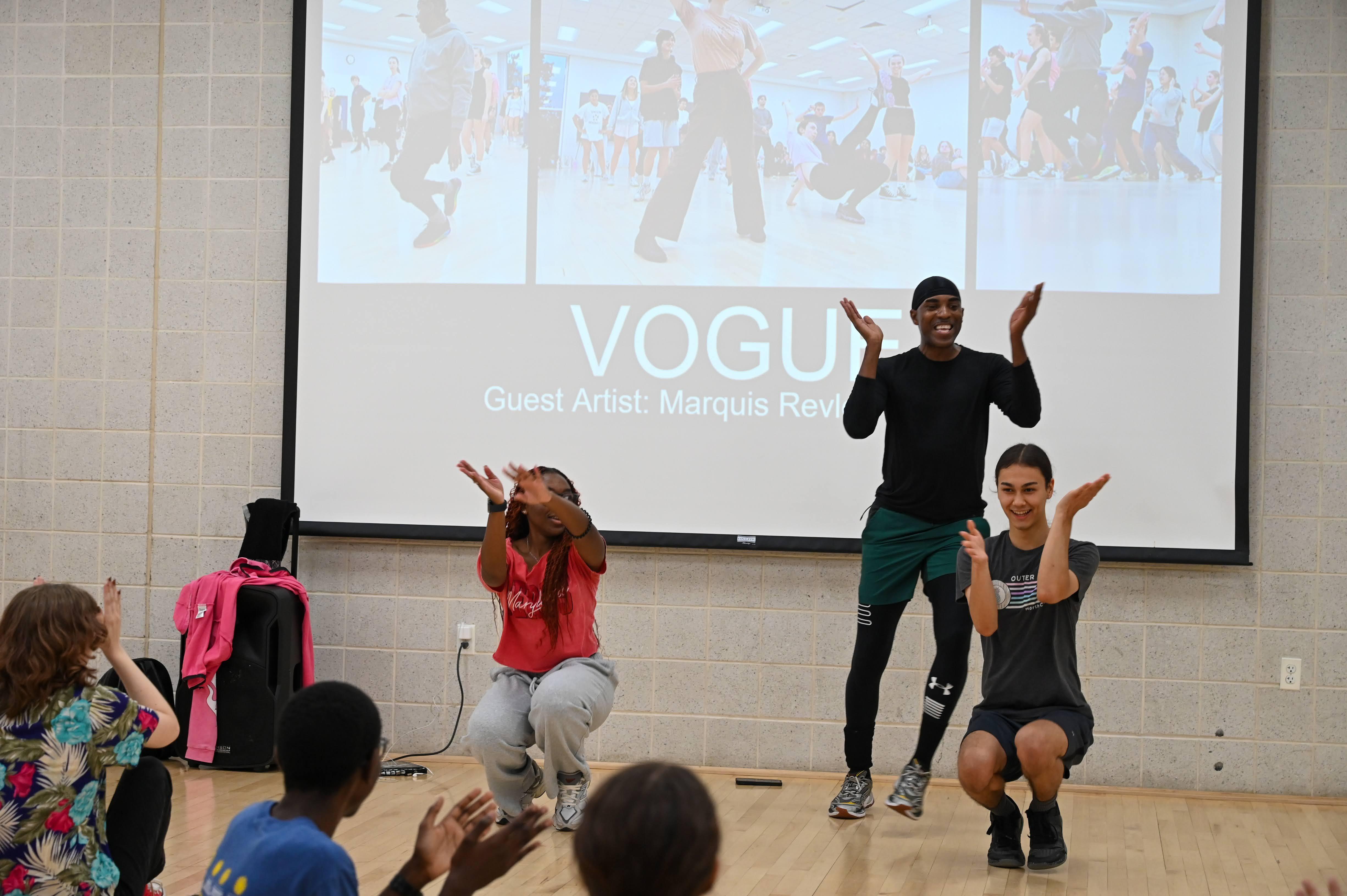
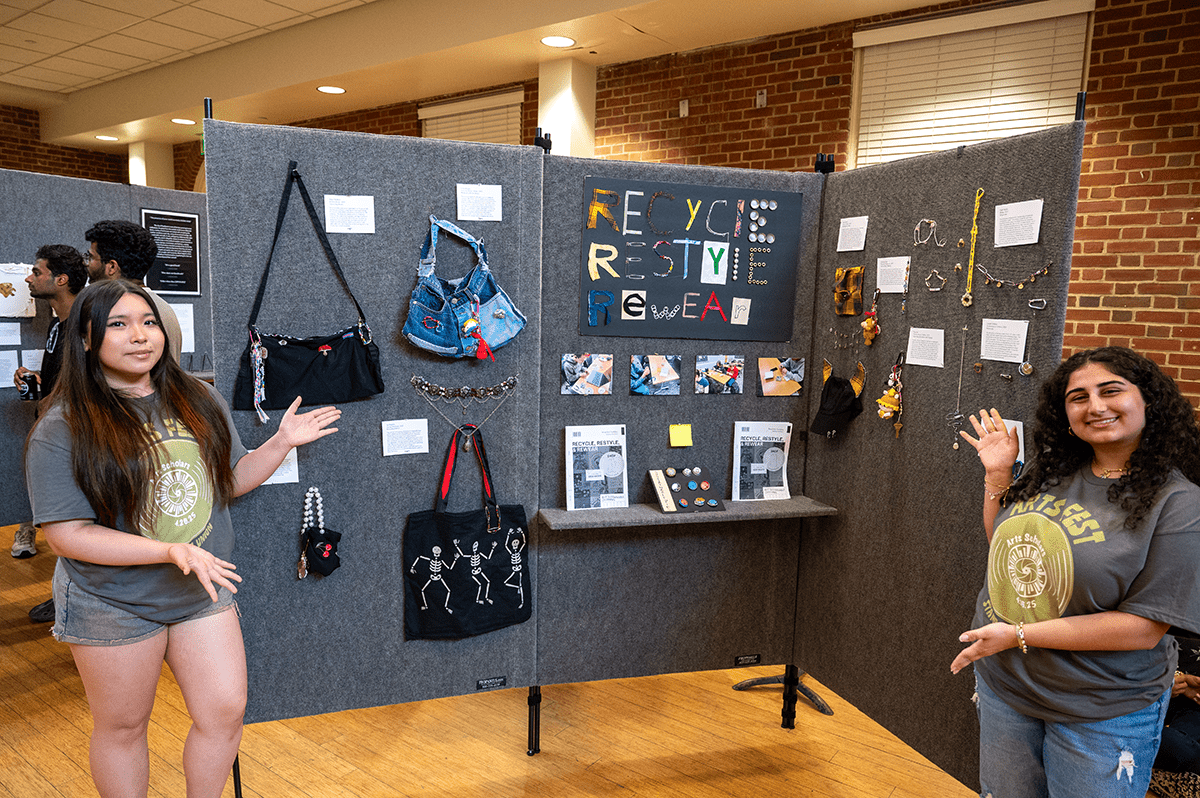
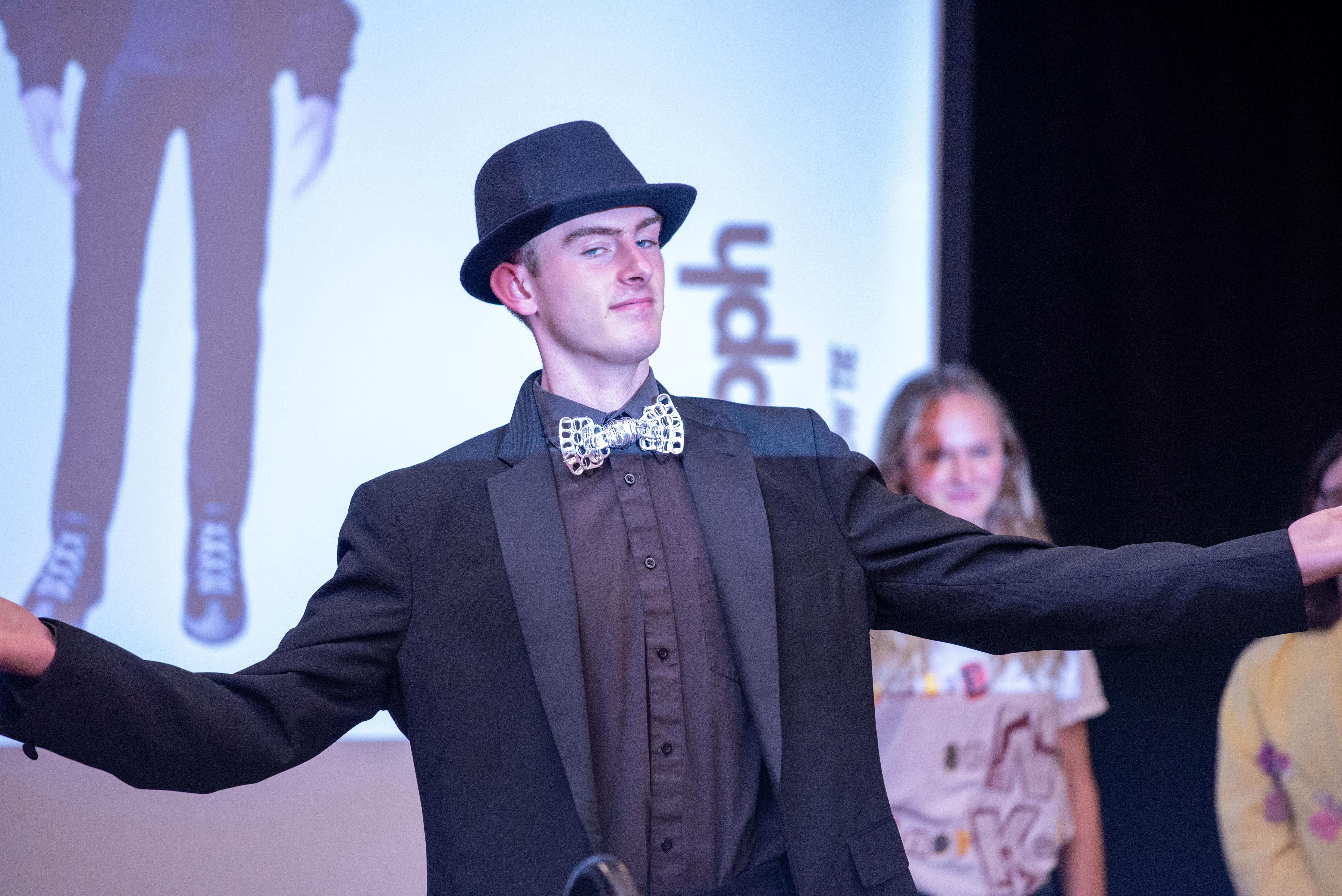
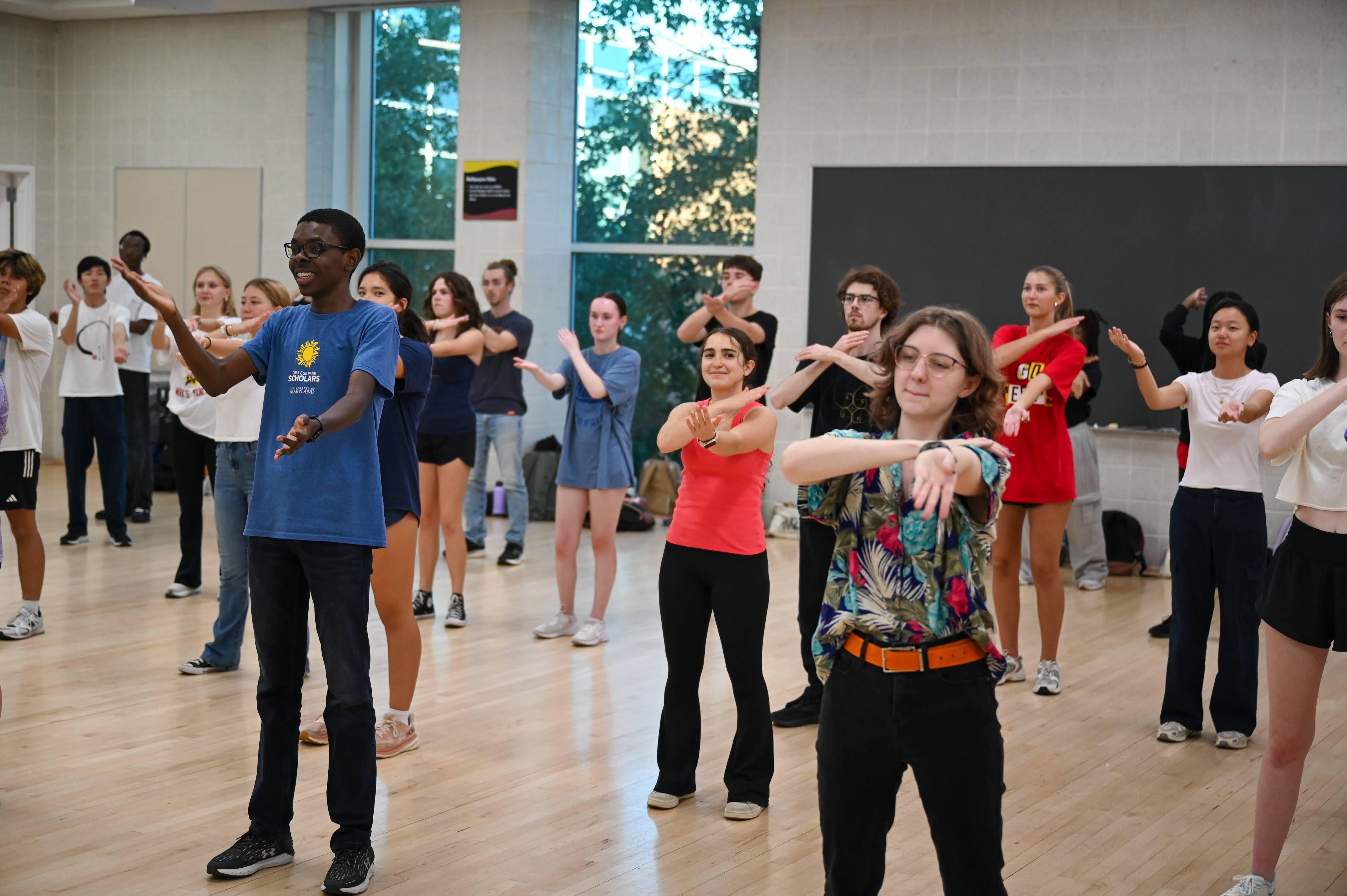
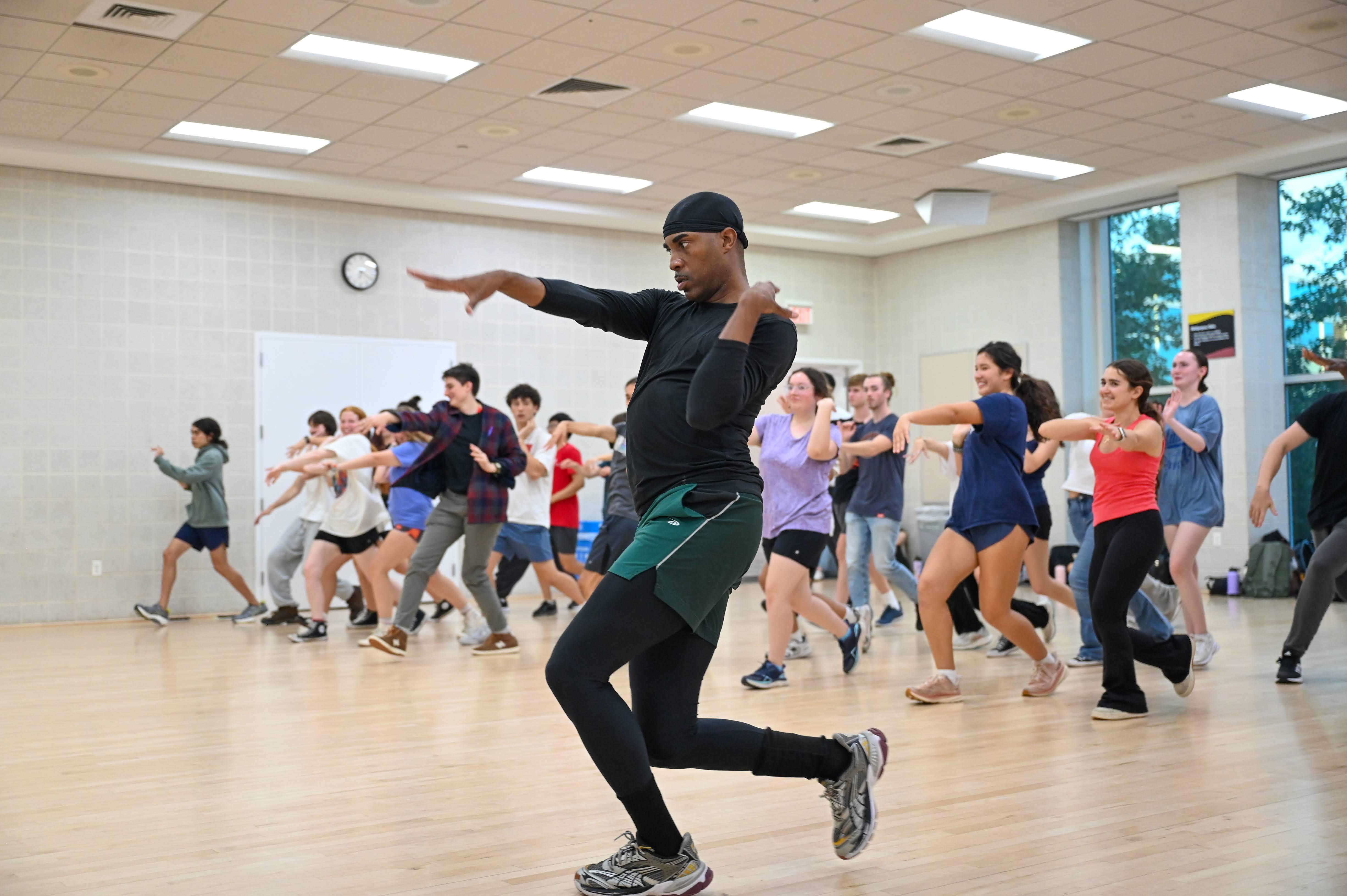
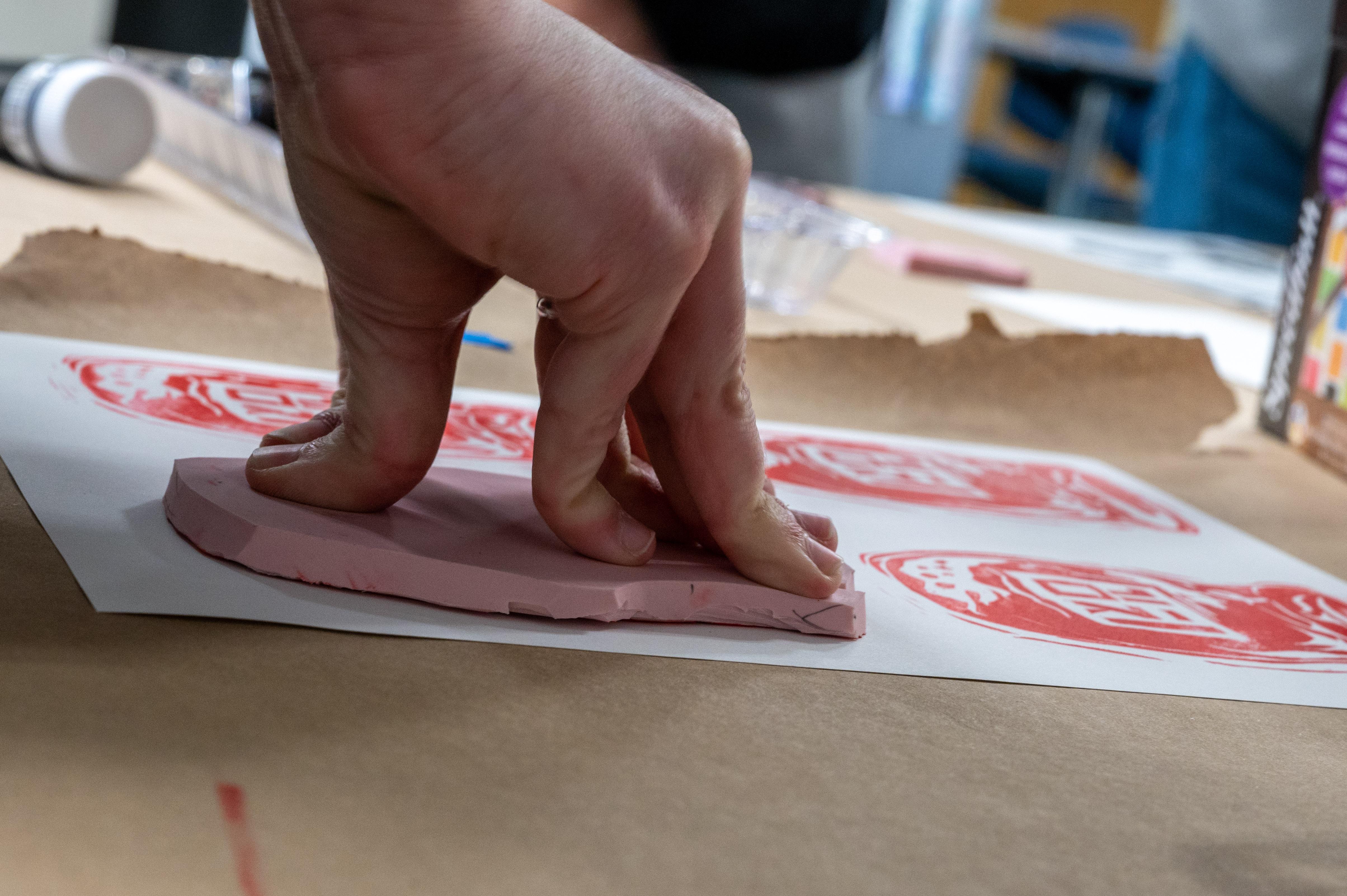

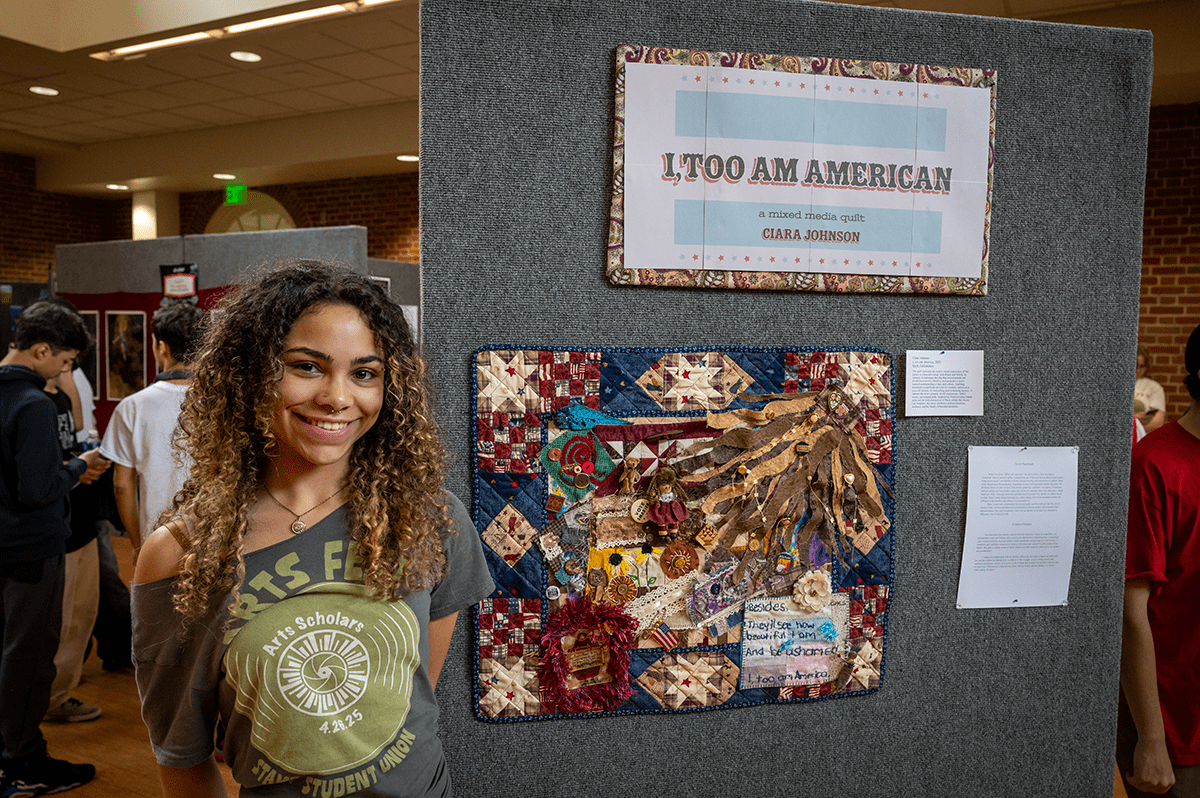
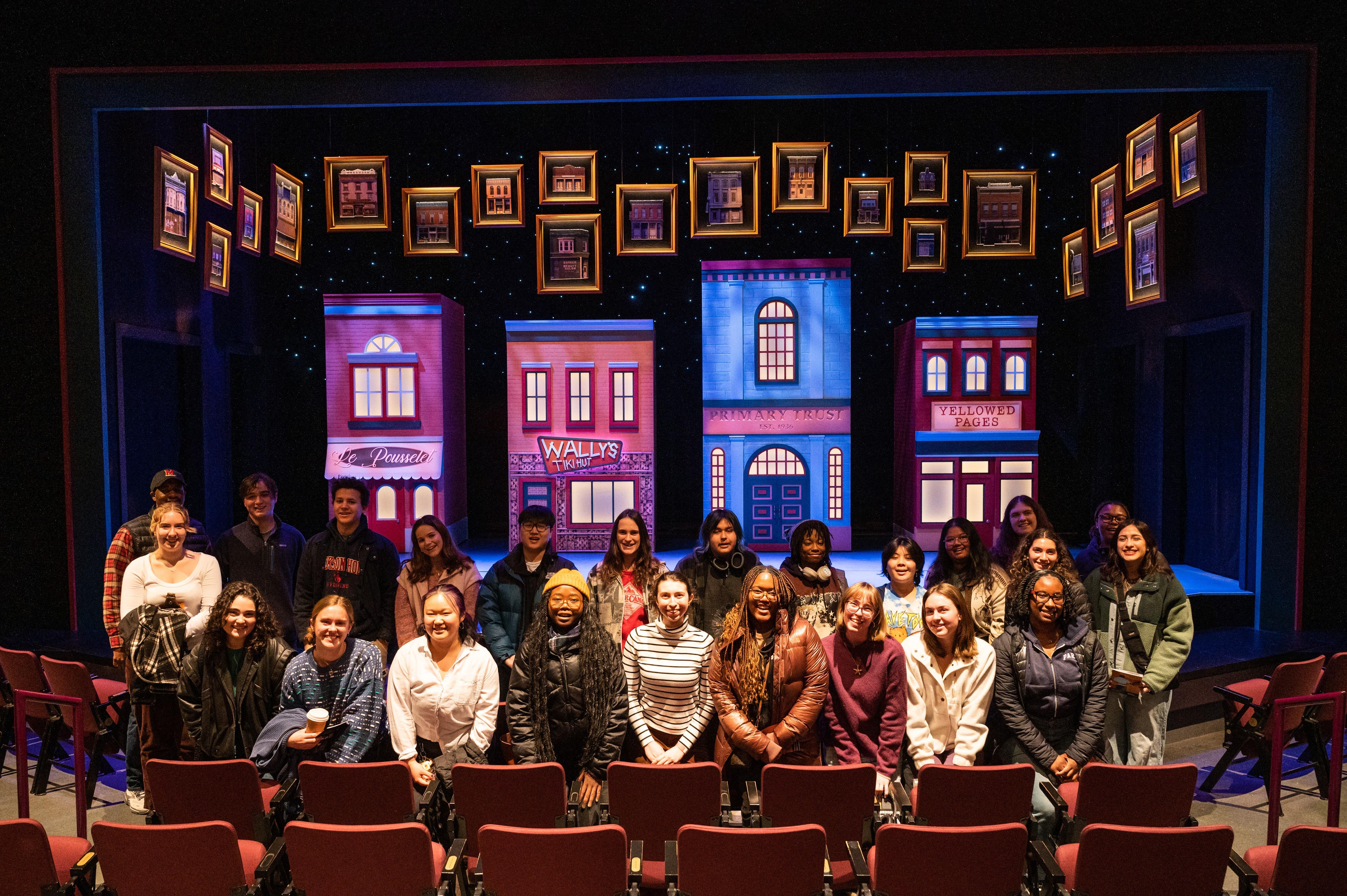
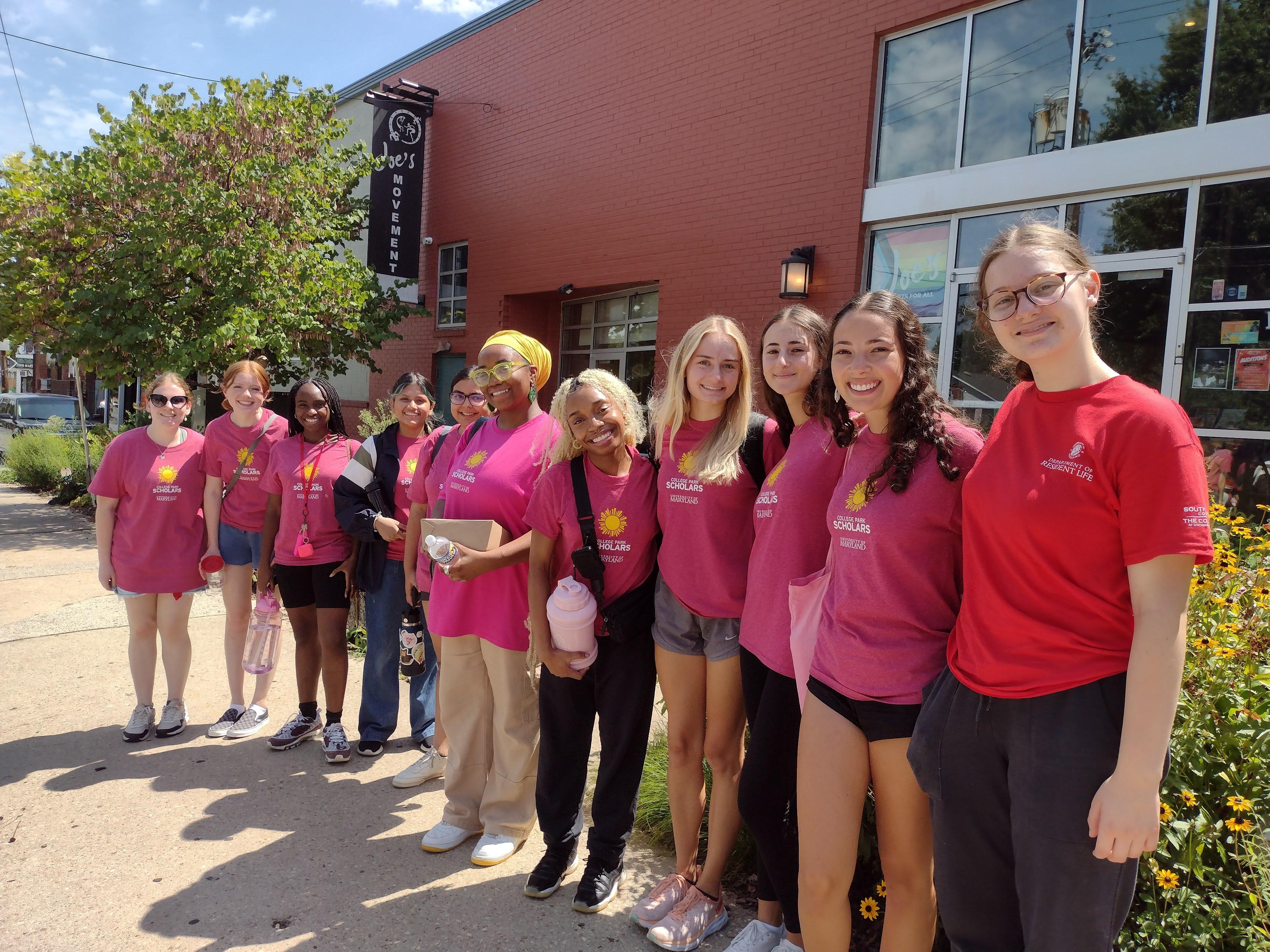
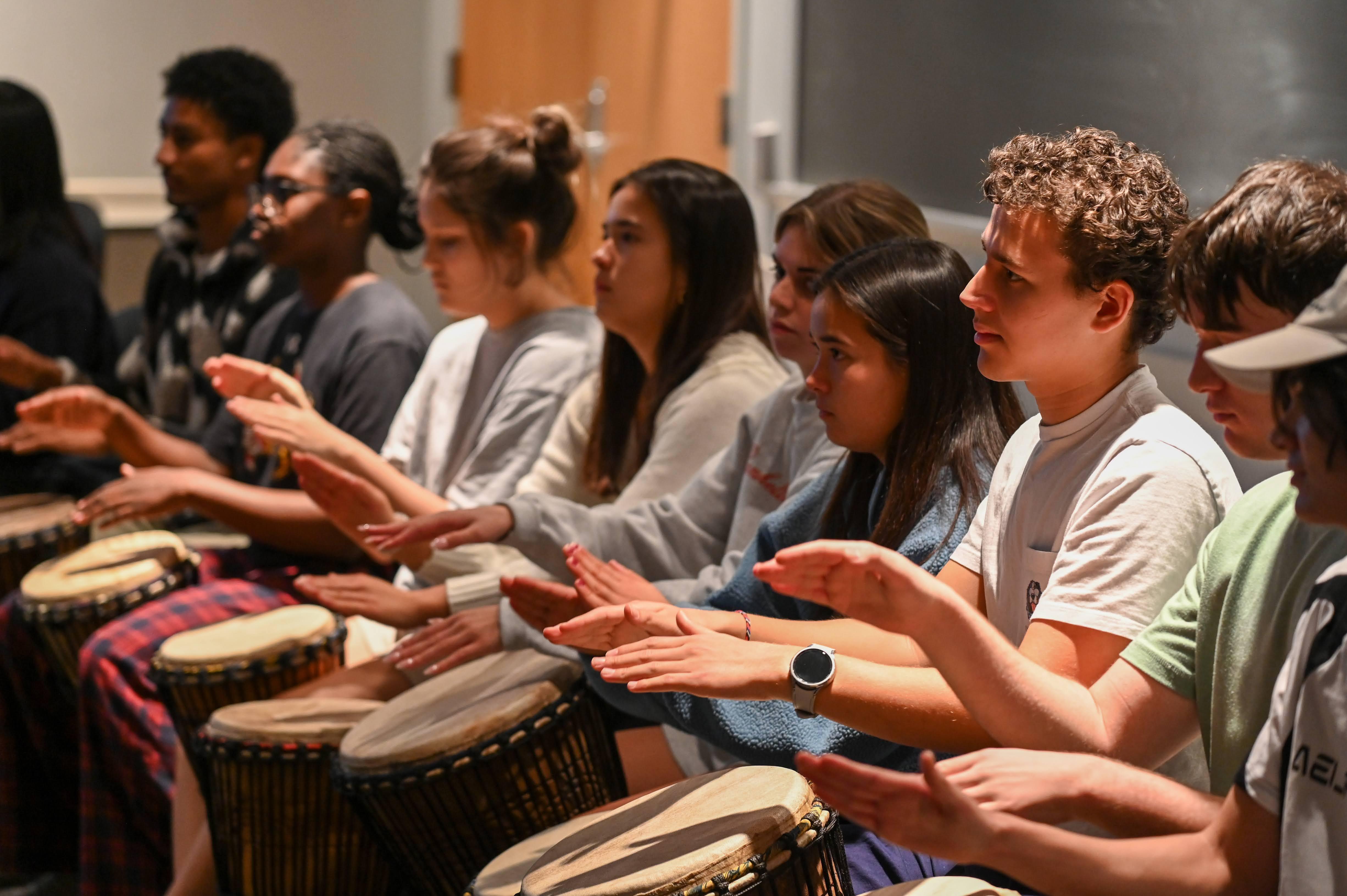
Colloquium and Lecture Topics
Through a mix of lectures, discussions, and guest artist workshops, and experiential projects, students consider (see our most recent “Year in Review” page for photos!):
- Vogue Dancing: How can art be used as a tool for resilience, resistance, and social chance?
- Artistic Consumption: How is artistic “taste” shaped by our social identities?
- Creative Research: How can empirical research, rapid iteration, and prototype testing improve your creative process?
- Spoken Word Improv: How can the principles of improv inform and improve our everyday lives?
- Campus Galleries: How can slow-looking help us combat the pressures of a frenzied world?
- West African Drumming: How can music build community, tell stories, and promote intercultural understanding?
I have been challenged to think differently, work cooperatively, embrace creativity and, most importantly, go beyond the limits I have set for myself. Because of this program, I can confidently say I feel infinitely more prepared for the “real world,” and for that confidence and growth, I could never be more grateful.
Other Learning Opportunities
Outside the classroom, Arts Scholars have many other opportunities….
Experience the arts first hand:
- Field trips: Each semester students visit locations such as The Clarice Performing Arts Center, the Everyman Theatre in Baltimore, the National Gallery of Art, and the National Museum of African American History and Culture.
- Maker Mixer: Teaching Assistant led community building events that include crafting, visiting campus galleries and maker-spaces, and attending shows on campus.
Creative Capstones:
- Sophomores develop capstone projects - identifying a social issue of significance to them to be explored through an artistic medium of their choosing. The capstone project is about your unique view of the world and what you want your audience to understand or experience as a result.
- All capstones are displayed at ArtsFest- an annual exhibition of student work in the Stamp Student Union.
Leadership opportunities:
- Arts Media Team: Social Media & Newsletter assistants work with Arts Faculty to research, draft, and publish the weekly newsletters and Instagram posts to the community.
- Arts Teaching Assistants: Arts Scholars graduates build their skills and experience leading discussions, developing events, and serving as mentors to current students.
Curriculum Overview
Over the two-year program experience (four semesters), students will complete up to 6 credits of supporting courses that will count toward your Arts Scholars citation. In most cases, these will also fulfill General Education requirements. Note that your Scholars courses—colloquiums, capstone practicum and supporting courses—will generally be in addition to any courses you take to satisfy major requirements.
The following represents a typical two-year curriculum, but individual schedules may vary. Details about courses and requirements can be found on the Arts Citation Checklist.
| SEMESTER | COURSE | CREDITS |
|---|---|---|
| Semester 1 | CPSA 100: Colloquium I | 1 credit |
| Semester 2 | CPSA 101: Colloquium II | 1 credit |
| Semester 3 | CPSA 200: Colloquium III | 1 credit |
| Semester 4 | CPSA 201: Colloquium IV | 1 credits |
| CPSA 240: Service Learning; or CPSA 250: Research (DSSP); or CPSA 260: Peer Teaching (DSSP) |
2 credits 2 credits 2 credits |
|
| Semester 1, 2, 3, or 4 | Supporting Course (var. Gen Ed) Supporting Course (var. Gen Ed) Supporting Course (DVUP or DVCC) |
3 credits 3 credits 1-3 credits |
Sponsoring College
Faculty
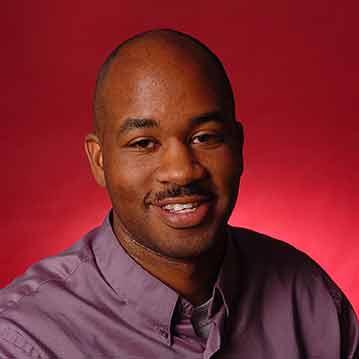
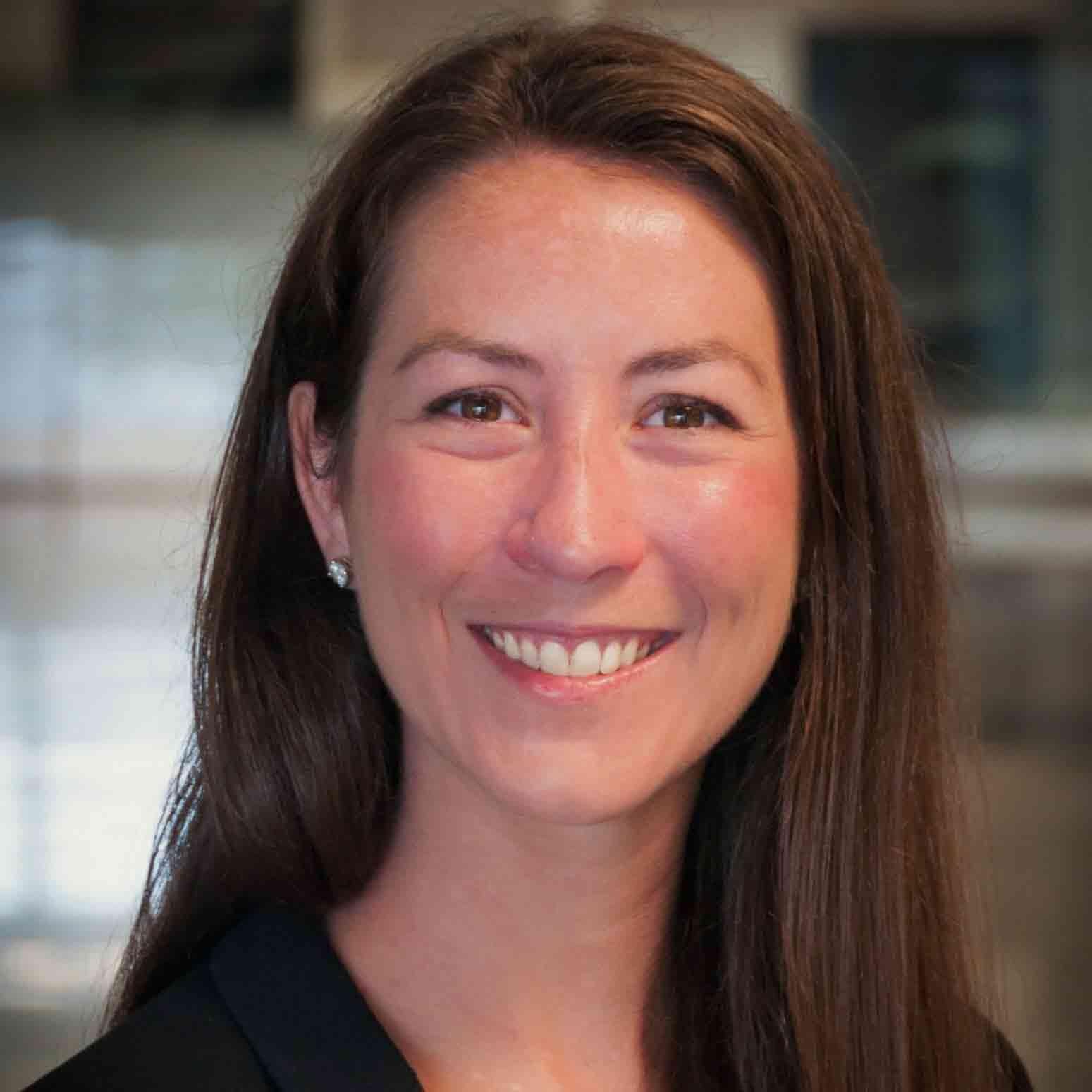
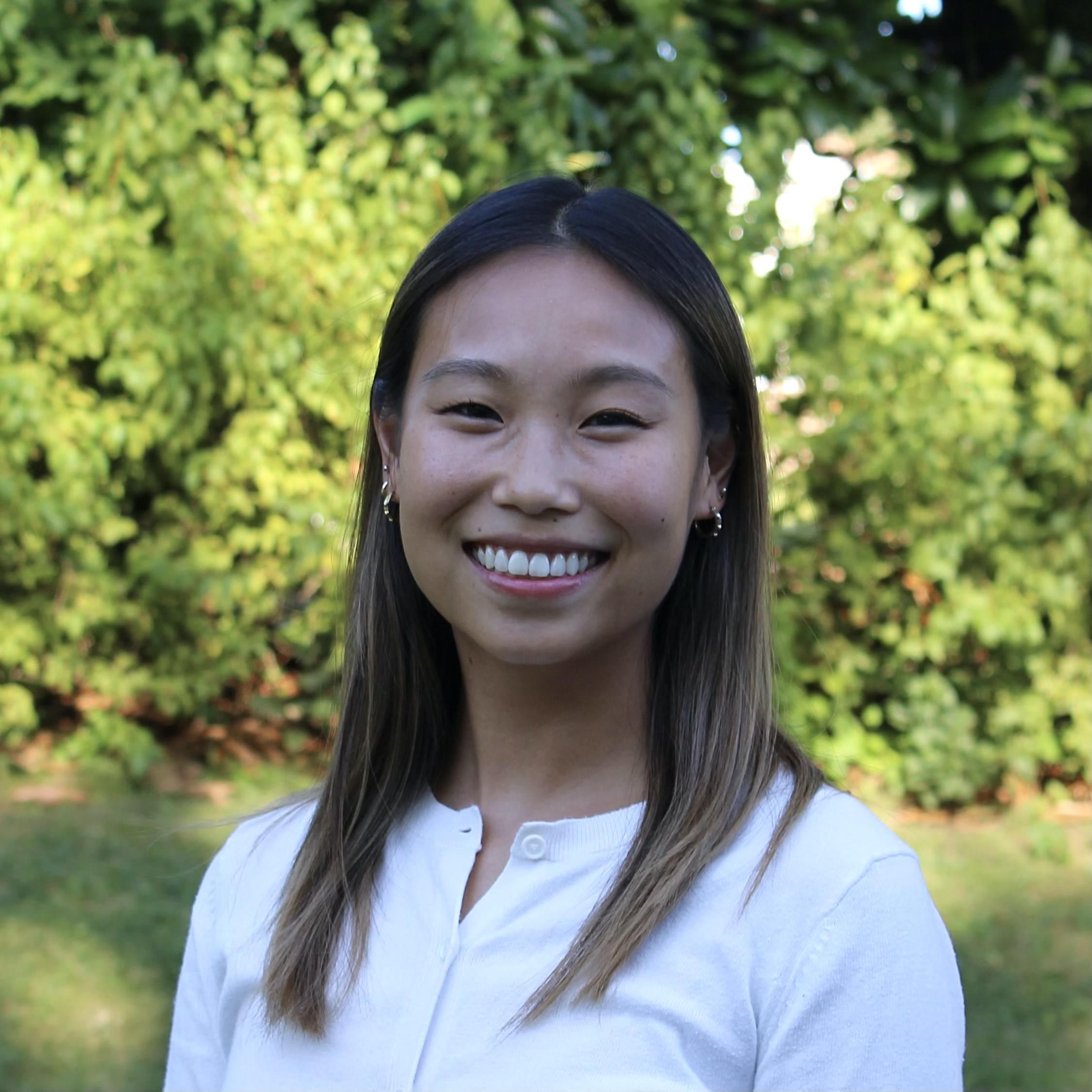
The Diamondback: UMD students' dance workshop highlights Japanese Butoh style, May 2022
Arts News
3 Scholars Alums Among University’s Undergraduate Researchers of the Year
Three Scholars alums were among the seven students named University of Maryland’s 2021 Undergraduate Researchers of the Year. Andrew Forschler, Arts Rebecca Gordon, Public Leadership Neehar Peri, Business, Society and the Economy Selected by a panel of faculty and staff, this honor recognizes select undergraduate students who displayed exceptional commitment to and accomplishments in undergraduate research at the university
10 Scholars Alums to Serve as Spring Commencement Senior Marshals
A significant number of Scholars alumni will be serving as Senior Marshals at the University of Maryland commencement this Friday, May 21, 2021. Senior Marshals are graduating seniors who display the highest levels of scholarship, service, extracurricular activity and personal growth.
Despite Being Virtual, Scholars Showcases Promote Personal Interaction
For most University of Maryland (UMD) students, the end of the spring semester heralds the start of finals. But for sophomores in College Park Scholars, for the past 24 years, this time of year has signified Academic Showcase. The event, one of the largest exhibitions of undergraduate student learning on campus each year, typically involves more than 600 Scholars sophomores presenting on their capstone projects to fellow students, faculty, parents and other members of the UMD community.
Scholars Alumni Named to Prestigious Maryland Medallion Society
Several Scholars alumni were named to the Maryland Medallion Society during the 40th Annual University of Maryland Student Leadership Awards this month. The Medallion Society is a prestigious group consisting of 20 of the brightest student leaders at the university:
Scholars-helmed Teams Win $8,000 in Awards at 2021 Do Good Challenge
An entirely virtual environment for this year’s University of Maryland Do Good Challenge did not stop teams led by Scholars alums from earning significant monetary awards for their initiatives. The annual event features student teams that are working to make a difference competing for funding support. Of this year’s six finalist teams, three were helmed by those with ties to Scholars:
College Park Scholars Announces Creation of Rebecca Basena Kampi Memorial Endowed Scholarship
Rebecca Basena Kampi. PHOTO: Sade Ayinde College Park Scholars has announced a new scholarship, the Rebecca Basena Kampi Memorial Endowed Scholarship.

